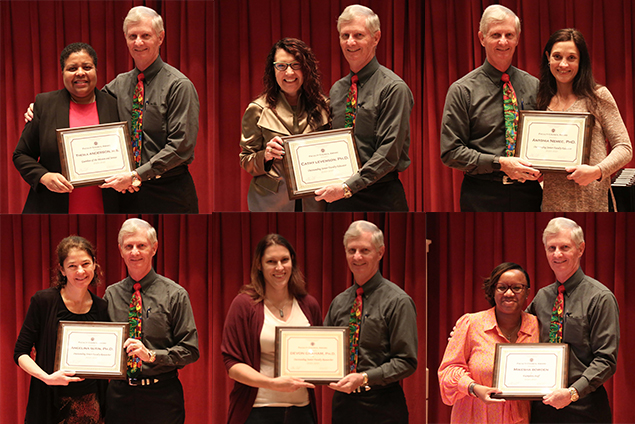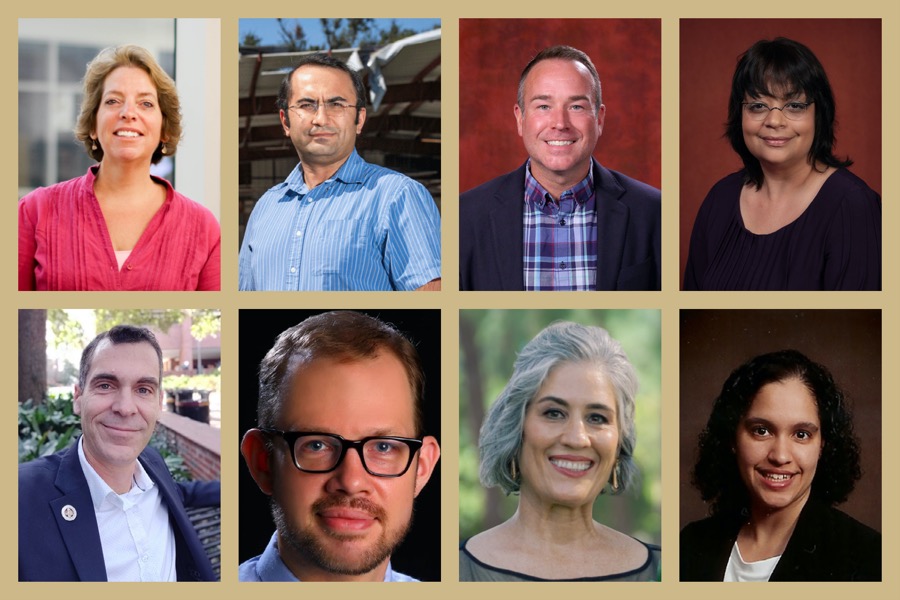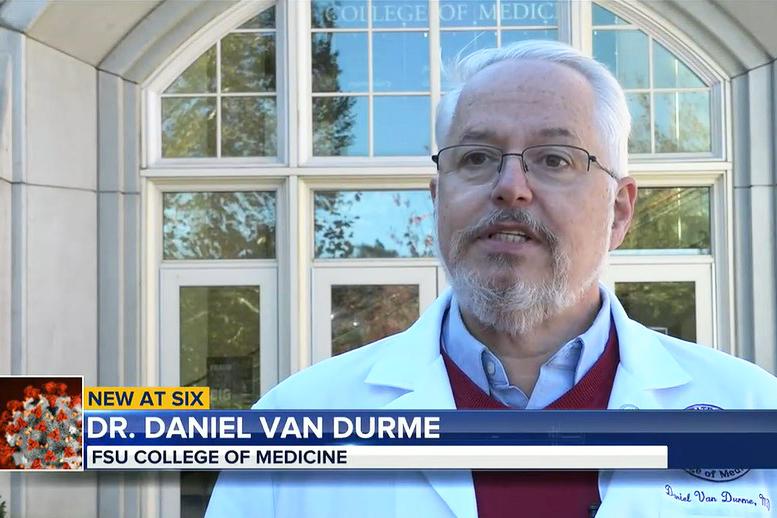The annual Florida State University College of Medicine faculty and staff awards were presented Dec. 3 in a hybrid celebration at the Durrell Peaden Auditorium and online.
Assistant professor Raed Rizkallah, who chaired the Faculty Council Executive Committee (FCEC), served as the master of ceremonies for the lunchtime event. Awards were presented to outstanding faculty educators and researchers, Guardian of the Mission and Service and exemplary staff.
The recipients of the 2020-21 awards were as follows:
Guardian of the Mission and Service: Thesla Berne-Anderson, M.S., Director of College and Pre-College Outreach
Outstanding Senior Faculty Educator: Cathy Levenson, Ph.D., Biomedical Sciences
Outstanding Junior Faculty Educator: Antonia Nemec, Ph.D., Biomedical Sciences
Outstanding Senior Faculty Researcher: Angelina Sutin, Ph.D., Behavioral Sciences and Social Medicine
Outstanding Junior Faculty Researcher: Devon Graham, Ph.D., Biomedical Sciences
Exemplary Staff: Mikesha Bowden, Student Affairs/Admissions
In addition, to the aforementioned award winners, the following College of Medicine employees for recognized for their longevity:
10 Years
Michelle Arbeitman, Medicine Biomedical Sciences
Daniel Bennett, Information Technology
Pradeep Bhide, Medicine Biomedical Sciences
Denis Burns, Information Technology
Melanie Carlson, Student Affairs/Admissions
Jacob Echols, Finance & Administration
Heather Flynn, Behavioral Sciences and Social Medicine
Heather Gordon, Student Affairs/Admissions
Terri Johnson, Medical Library
Veronica Jones, Autism
Eric Laywell, Student Affairs/Admissions
Deirdre McCarthy, Medicine Biomedical Sciences
Thomas Morgan, School of Physician Assistant Practice
Michael Nair-Collins, Behavioral Sciences and Social Medicine
Glendy Perez, Immokalee Training Site
Jose Pinto, Medicine Biomedical Sciences
Niharika Suchak, Geriatrics
Michael Sweeney, Clinical Sciences
Tana Jean Welch, Family Medicine & Rural Health
Greg Whitehead, Information Technology
Yanming Yang, Translational Science Lab
15 Years
Suzanne Bush, Clinical Sciences
Robert Campbell, Student Affairs/Admissions
Doug Carlson, Public Affairs & Communication
Debra Danforth, CLC/ Simulation Centers
Connie Donohoe, Graduate Medical Education
Sharica Hayes, Student Affairs/Admissions
Tiffany McNabb, Medicine Biomedical Sciences
Traci Parker, Pensacola RMSC
Monica Ragans, Finance & Administration
Charles Saunders, School of Physician Assistant Practice
20 Years
Trey Dyal, Finance & Administration
Pam McCully, Finance & Administration
Robert Montgomery, Finance & Administration
Julie Peacock, Tallahassee RMSC
Elena Reyes, Immokalee Regional Campus
A complete listing of all College of Medicine faculty and staff awards can be found on our website here:
https://public.med.fsu.edu/awards/CollegeofMedicine/Faculty?status=Full%20Time%20Faculty
A complete listing of all College of Medicine student awards can be found here:
https://public.med.fsu.edu/awards/CollegeofMedicine/Student?status=Staff



